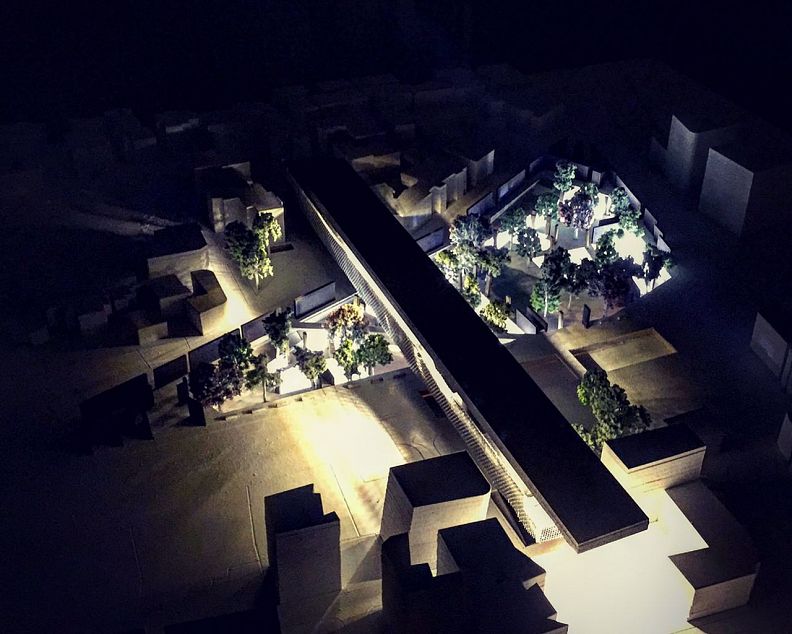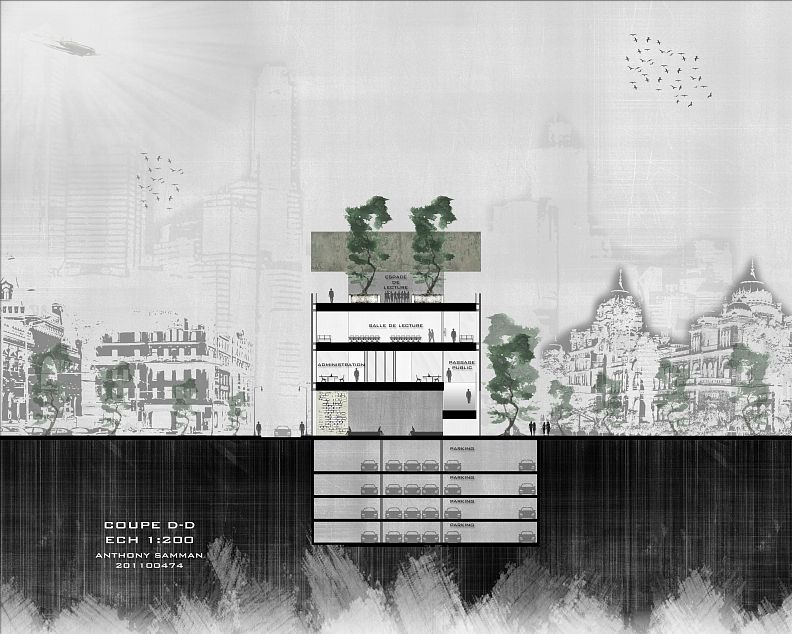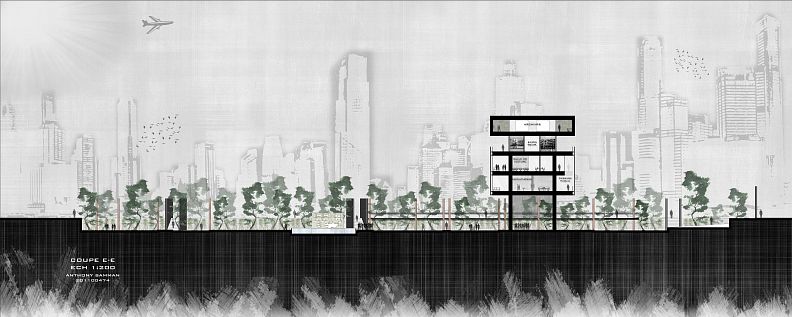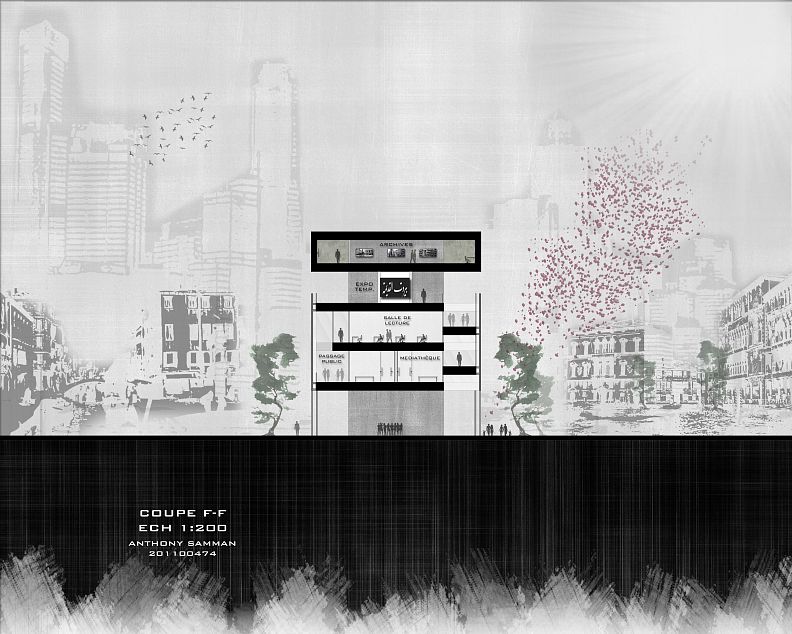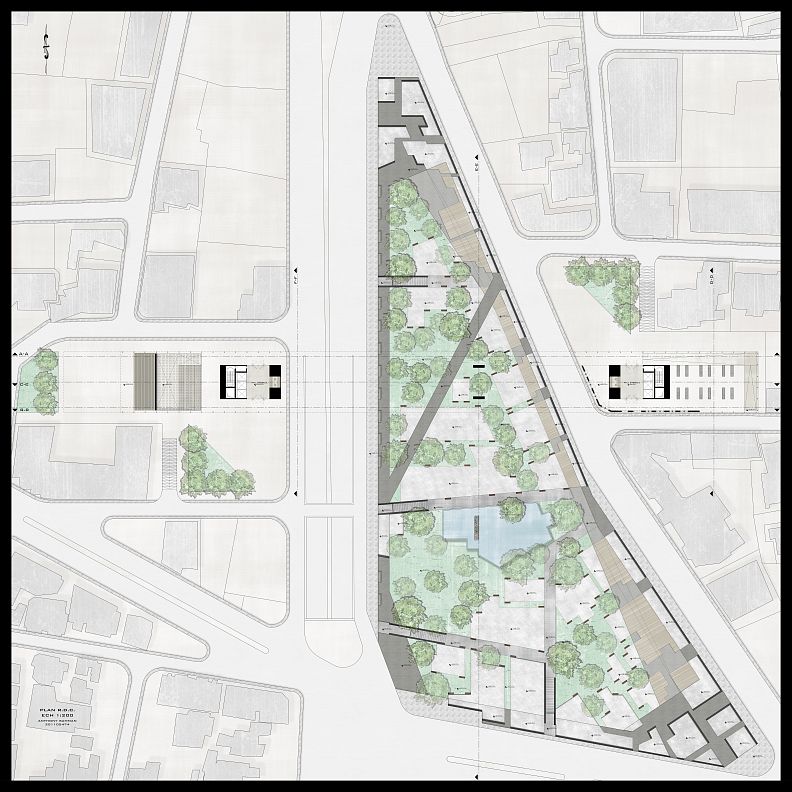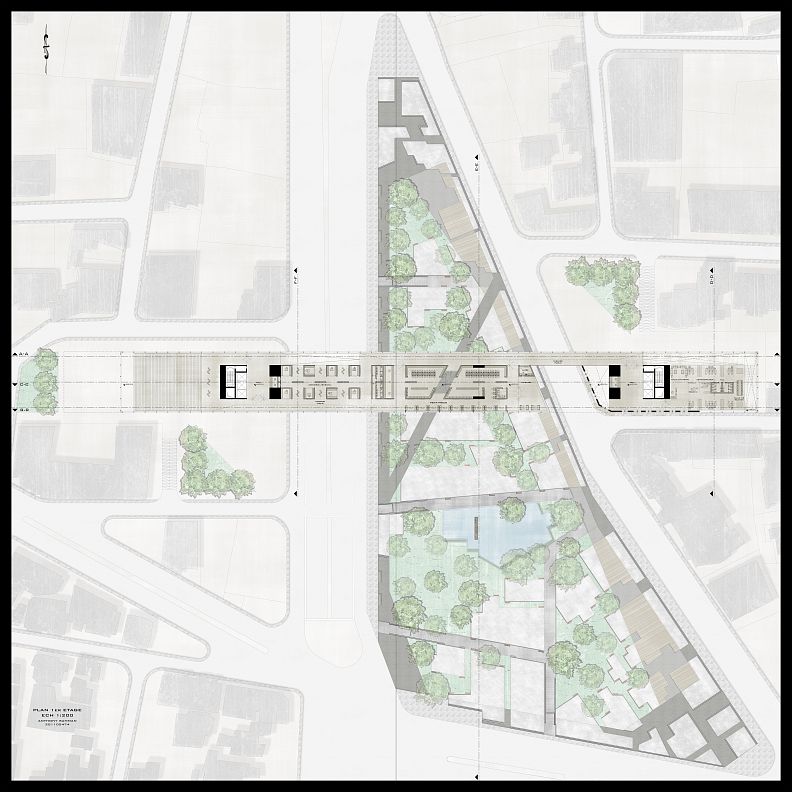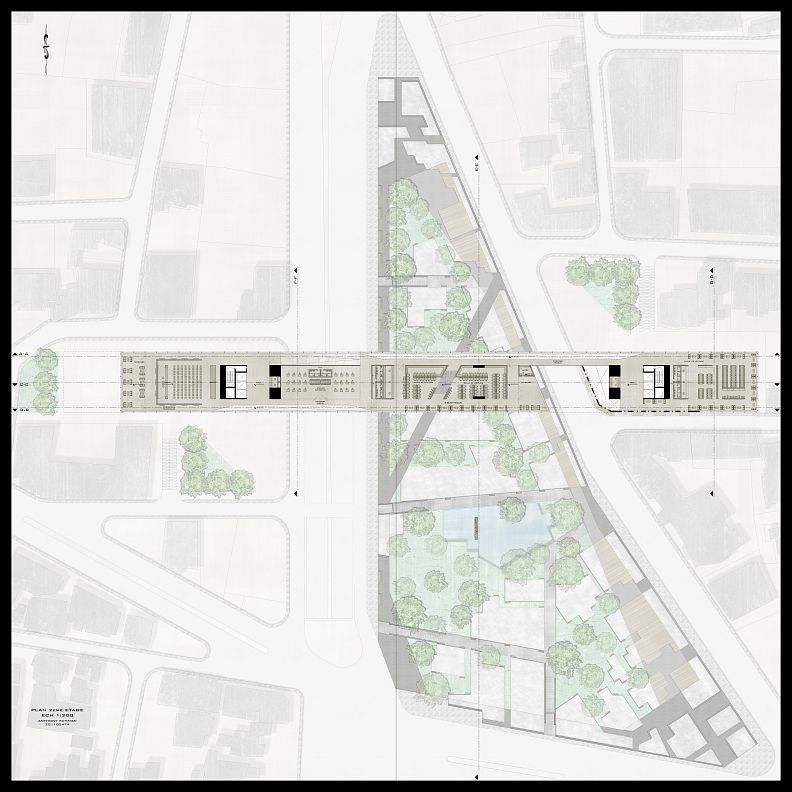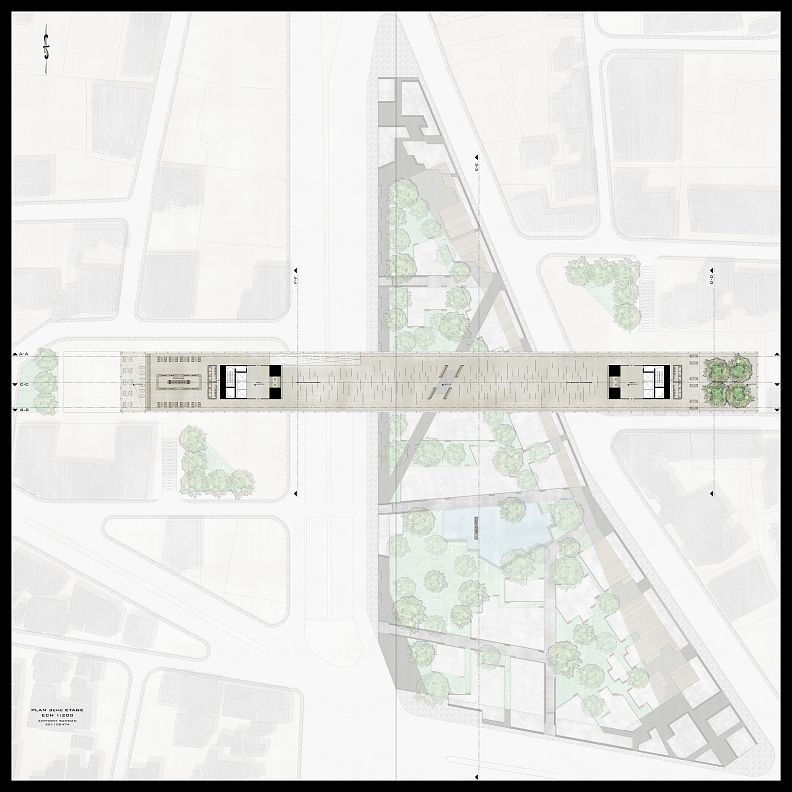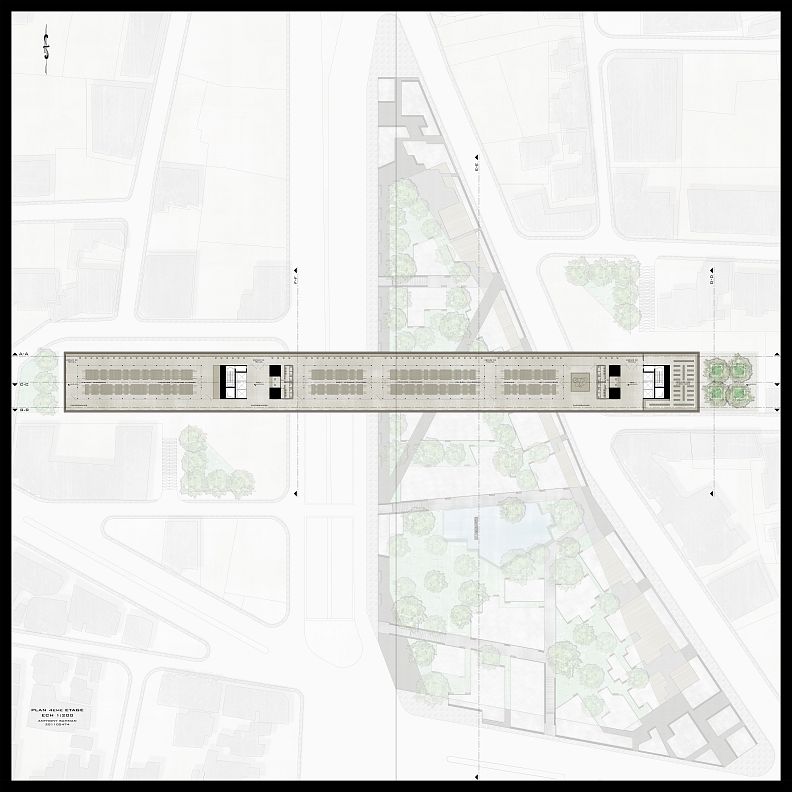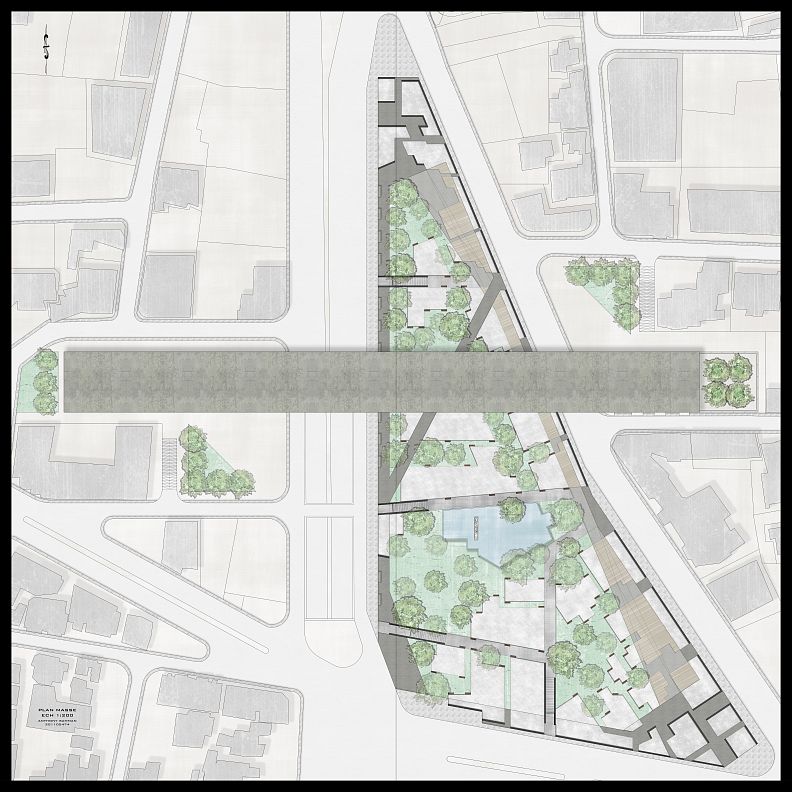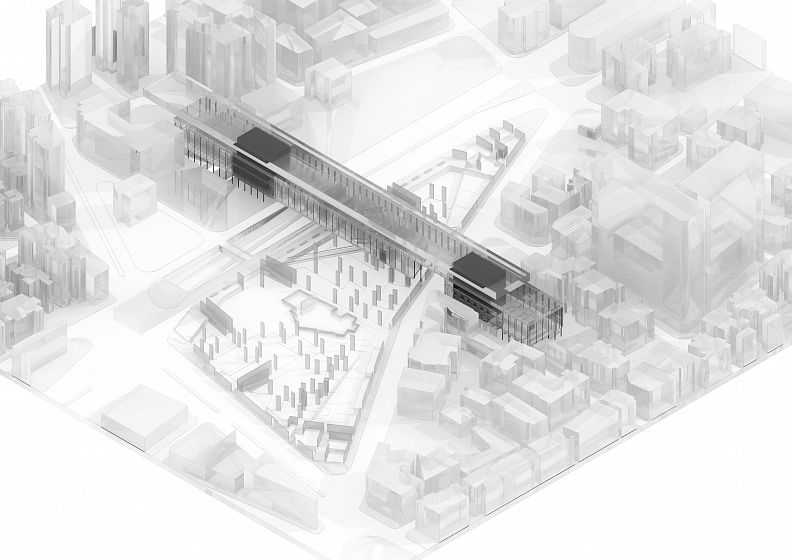Between The 3 Lines ...

Project idea
Before the Lebanese civil war, which had decimated the country between 1975 and 1990, the capital Beirut was a pioneering tourist destination in the Middle East with its café-pavements, its theater, its cultural clubs, its cinemas and its confessional diversity which made its richness and its singularity in the Arab world, thus becoming the cultural and commercial center of the region. Then came the 1975 civil war which divided Beirut into two divergent sectors (East Beirut and West Beirut) thanks to a virtual line created by the war-makers of the time. This line was known as "The Line of Demarcation". The war ended, "The Line of Demarcation" disappeared gradually, with the peace that began to reign over Lebanon; however, this "line" almost always exists in the minds of the Lebanese, especially the generation after the war.
- The Mutation of the Demarcation Line
The Demarcation Line mutated from a rupture of memory to an urban rupture to an economic & social rupture.
A rupture of memory, "The Demarcation Line" which divides the capital Beirut in "East" and "West".
An Urban Rupture, the highway "Avenue Bechara El Khoury" which symmetrically cuts the capital.
An Economic & Social Rupture, "Avenue General Fouad Chehab" which separates the city center from other sectors.
Hence the intervention will be between the 3 ruptures.
- Problematic
How to adopt this mutation in an architectural project that will influence social life and urban metamorphosis in Beirut?
- What is left ?
One wall persists and resists. The wall of the Syriac church.
- Purpose of the Project
From there my project will be a pivot, a hub, or a positive virus that will contaminate and modify the urban environment and will be a link between the two interfaces "East" and "West".
Project description
The Project consists of two major functions:
A Memorial Park
A Cultural Urban Link made of : library, media library, exhibition, commercial shops, craft workshops, public transit,and book & cartographic archives.
Technical information
After my first visit, the 3 existing buildings in the land built after the war are considered an architectural obstacle. Hence the interest is to remove the buildings and make the land in its empty state after the civil war.
Since the land is a vacant space, the goal is to keep the void in the city which will then turn into a memorial park.
Lowering the level of the park as it was before the war.
Retracing of the ancient buildings that existed on this land and transforming them into a layout that will become a space for contemplation. Filtration of pedestrian traffic through the old narrow lanes. A ramp parallel to the green line connects the two silent poles of the park.
Make the old elevations to the outline of the park by tombstones on a city scale. On the other hand, the lower part of the park consists of tombstones on a human scale. These walls seem to be the ruins of the old buildings. Accentuate the stairs by walls to give the effect of a transition from a chaotic space to a pure space.
A simple strong bond linking the urban fabric "east" with the urban fabric "west".
The undefined brutal volume fits into the urban fabric giving the impression that the two different fabrics are "unified".
Release the Ground floor to provide visual continuity and transparency. The volume is split into two parts, the lower part contains the cultural and social functions. The upper part contains the book and cartographic archives. Between the two is an empty space that contains temporary exhibits. Equivalent to the old roofs of Beirut.
Translation of the upper part to make the volume dynamic.














